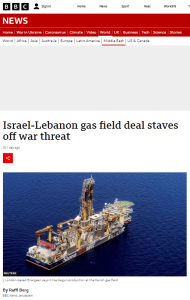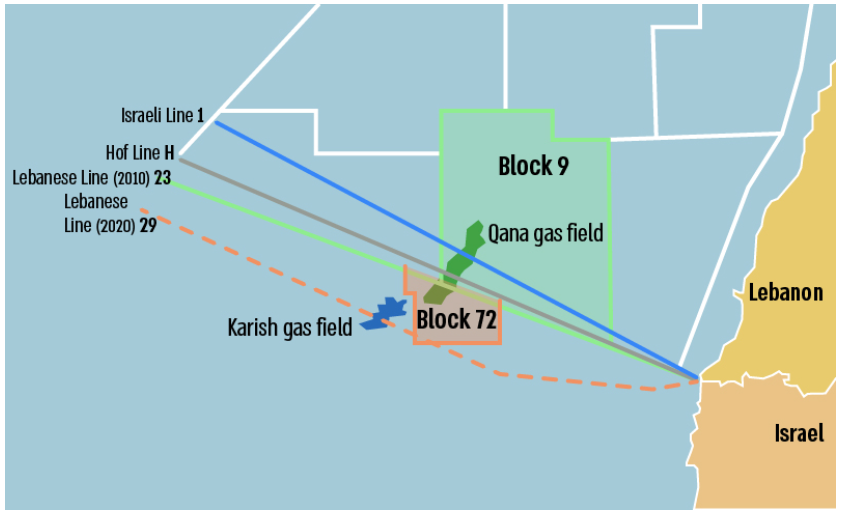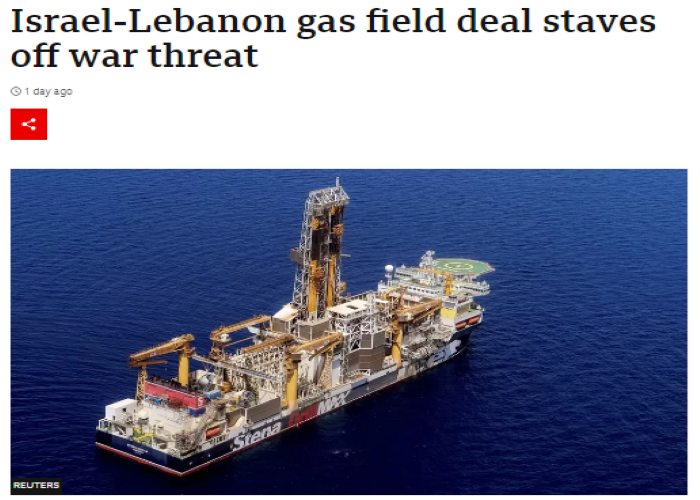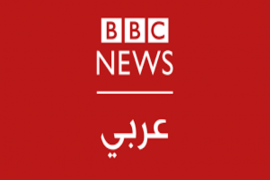On October 27th a report concerning the signing of the Israel-Lebanon maritime agreement appeared on the BBC News website’s ‘Middle East’ page. Credited to Raffi Berg, that report is headlined “Israel-Lebanon gas field deal staves off war threat”.
As previously documented on these pages, BBC audiences have seen patchy coverage of that topic over the years:
REVIEWING BBC REPORTING ON THE ISRAEL-LEBANON MARITIME BORDERS DISPUTE
SKETCHY BBC EXPLANATION OF MARITIME BORDERS DISPUTE
In this latest short report readers find a re-cycled unhelpful map and are told that:
“Israel and Lebanon have signed an historic agreement setting their borders in the Mediterranean Sea.
The neighbours, which have technically been in a state of war since Israel’s founding in 1948, had been in a dispute over rights to a gas field there.
Hezbollah, the powerful militant and political group in Lebanon, had threatened to attack Israel if it extracted gas before a deal.”
The gas field concerned is the Karish field, where production already began (as noted in the caption to the photograph illustrating the report) one day before the signing of the agreement. Prior to that, preparatory work had been in progress since June.
Nevertheless, the report goes on:
“The agreement covers 330 sq miles (860 sq km) of sea off their coasts. Until now, neither country has been able to exploit the area’s natural resources because of a disagreement over where the boundary lay.
The disputed patch contains part of Karish, a confirmed gas field, and part of Qana, a prospective gas field.
Under the US-brokered deal, Israel secured full rights to Karish, while Lebanon’s rights to Qana were also recognised. Lebanon agreed for some potential revenue from Qana, part of which lies within Israel’s waters, to go to Israel.”
Berg fails to clarify that the original 2010 Lebanese claim (Line 23) did not include the Karish gas field and that the augmented claim (Line 29) was only presented in late 2020. As noted by the INSS in July:
“The process of approving Line 29 as the official stance of Lebanon – as insisted on by Hezbollah – has not been completed and has no legal standing. Its final approval by the Lebanese government was frozen by President Michel Aoun, who prevented it from being brought to the Parliament for approval. The toughening of the Lebanese stance, which reflects this internal dispute, led to the cessation of talks in 2020.”

Lebanon gave up that Line 29 claim in June of this year, as explained by Orna Mizrahi of the INSS:
“Reaching the agreement became possible first and foremost due to the change this past June in the Lebanese stance. Lebanon is in the midst of an economic collapse and a deep political crisis. With the arrival of the Karish gas rig in Israel on June 5, [US negotiator] Hochstein was called to Beirut, which relinquished its maximalist demand (Line 29) and presented a compromise position and a willingness to complete the deal soon.”
Once again we see that the ‘permanent public record’ presented by the BBC News website does not provide the full information on this story.




